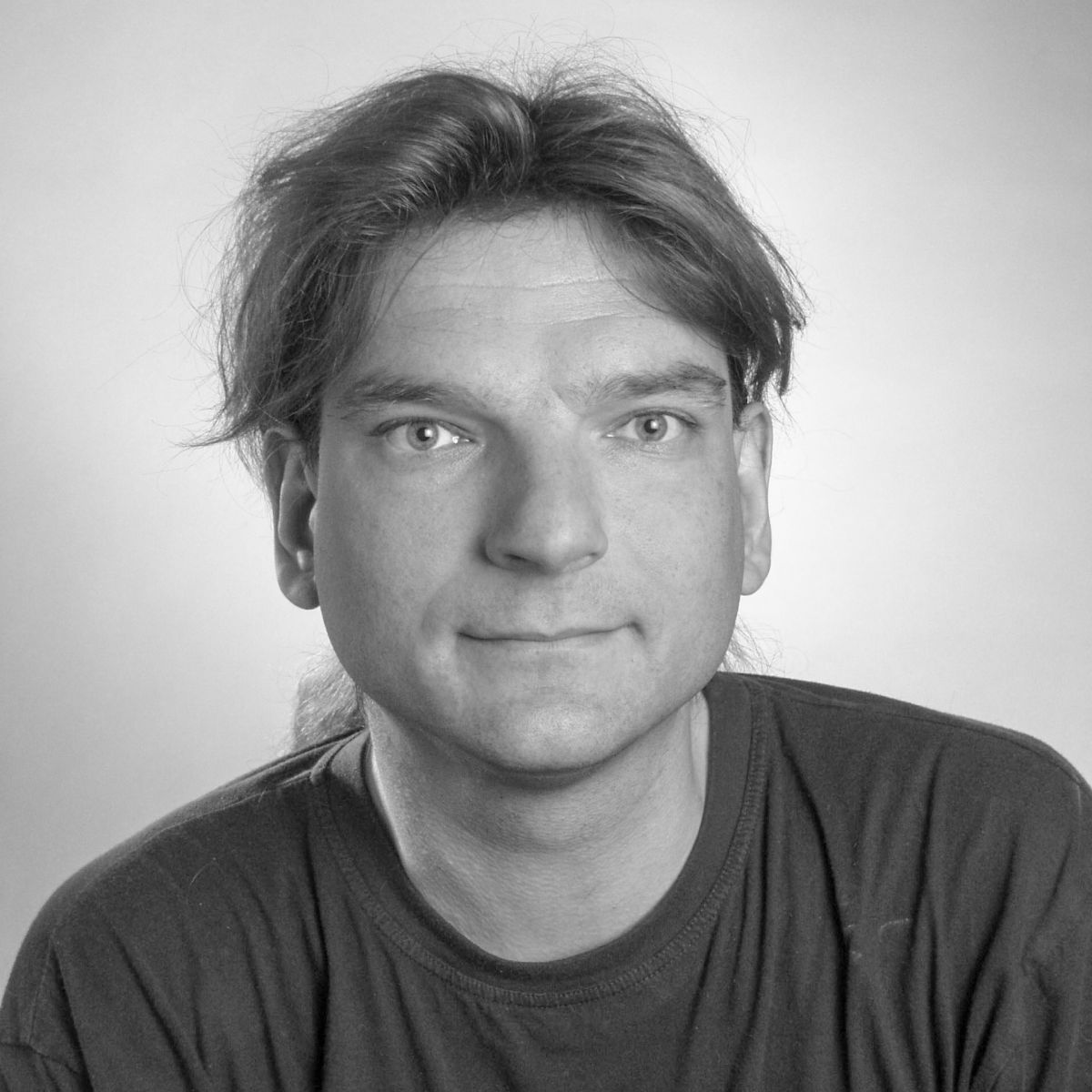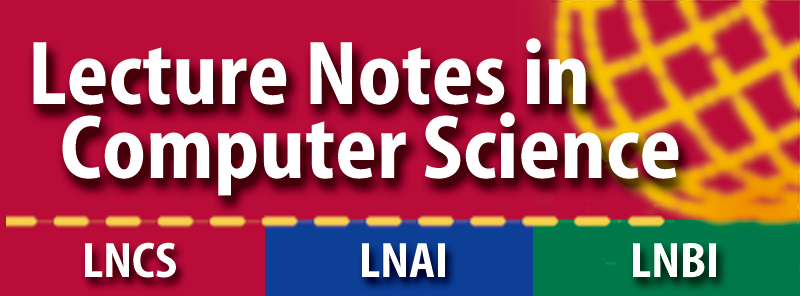ISC 2019 Research Papers
The ISC research paper sessions provide world-class opportunities for engineers and scientists in academia, industry and government to present and discuss issues, trends and results that will shape the future of high performance computing (HPC), Networking, Storage and AI/Machine Learning.
The ISC organizers as well as the German Gauss Center for Supercomputing will again sponsor the call for research papers with two awards for outstanding research papers: the Hans Meuer Award and the GCS Award.
Attendance will require a Conference Pass.
Chair - Dipl.-Ing. Carsten Trintis
From all Research Papers submitted to the conference, the ISC 2019 Research Papers Committee, which is headed by Dr.-Ing. Carsten Trinitis, TU Munich, Germany, with Prof. Saday Sadayappan, Ohio State University, USA, as Deputy Chair, has selected the following Research Papers for presentation at ISC High Performance 2019:
Monday, June 17
Research Paper Award Session
- Hans Meuer Award Finalist 1: Global Task Data Dependencies in PGAS Applications
- Hans Meuer Award Finalist 2: GPUMixer: Performance-Driven Floating-Point Tuning for GPU Scientific Applications
- GCS Award Winning Paper: End-to-end Resilience for HPC Applications
Tuesday, June 18
Research Paper Session - Data Storage and Visualisation
- SLOPE: Structural Locality-aware Programming Model for Composing Array Data Analysis
- A Near-Data Processing Server Architecture and Its Impact on Data Center Applications
- Comparing the Efficiency of In Situ Visualization Paradigms at Scale
Research Paper Session - Machine Learning and Emerging Technologies
- Densifying Assumed-sparse Tensors: Improving Memory Efficiency and MPI Collective Performance during Tensor Accumulation for Parallelized Training of Neural Machine Translation Models
- Layout-Aware Embedding for Quantum Annealing Processors
- Learning Neural Representations for Predicting GPU Performance
Research Paper Session - Performance Modelling and Measurement & Algorithms
- PerfMemPlus: A Tool for Automatic Discovery of Memory Performance Problems
- Toward efficient architecture-independent algorithms for dynamic programs
- Performance Exploration Through Optimistic Static Program Annotations
Wednesday, June 19
Research Paper Session - HPC Applications
- Petaflop Seismic Simulations in the Public Cloud
- MaLTESE: Large-Scale Simulation-Driven Machine Learning for Transient Driving Cycles
Research Paper Session - Programming Models & System Software, Architectures & Networks
- Evaluating Quality of Service Traffic Classes on the Megafly Network
- Resilient Optimistic Termination Detection for the Async-Finish Model
- Finepoints: Partitioned Multithreaded MPI Communication
PLEASE NOTE: The Call for Research Papers is closed!
Important Dates
| Full Submission Deadline | Closed |
| Author Rebuttals | February 11 - February 15, 2019 |
| Notification of Acceptance | February 27, 2019 |
| Camera-Ready Submission | March 25, 2019 |
| Research Paper Sessions | June 17 - June 19, 2019 |
| Final Presentation Slides in PDF due | June 21, 2019 |
Areas if Interest
The Research Papers Committee encourages the submission of high-quality papers reporting original work in theoretical, experimental, and industrial research and development. The ISC submission process will be divided into eight tracks this year.
| Architectures, Networks & Infrastructure | Data, Storage & Visualization | |
|
|
|
| HPC Applications | HPC Algorithms | |
|
|
|
| Programming Models & Systems Software | Artificial Intelligence & Machine Learning | |
|
|
|
| Performance Modeling & Measurement | Emerging Technologies | |
|
|
Note: Submissions on other innovative aspects of high performance computing are also welcome. You will be asked to pick a primary and a secondary track from the eight above for your submission.
Submission & Review Process
Only accepted style: LNCS style (Springer’s website)
- Single column format
- Maximum 18 pages (including figures and references)
- LaTeX document class OR Word template
- Suitable for anonymous review
- Incorrectly formatted papers will be excluded
Review
- Minimum 4 reviewers
- Double-blind peer-review (see ISC High Performance Double-Blind Review Guidelines)
- Criteria: novelty, fundamental insights and potential for long-term contribution
Rebuttal phase (February 11 – 14, 2018)
- Chance to respond to reviewer comments
- Clarify misunderstandings
- Written format
- Authors receive instructions via email
Final decision (February 27, 2018)
- Consideration of reviews and rebuttals
- Discussion at research paper committee meeting
- Notification of authors
Terms & Conditions
- By submitting a paper, you agree to present the paper at ISC 2019 in Frankfurt, Germany.
- The research paper sessions will be held from Monday, June 17 through Wednesday, June 19, 2019. Paper presenters need to be registered ISC 2019 participants.
- The ISC organizers will grant a 100% discount on the conference day pass to one presenter per paper for the day of their presentation.
- Travel, accommodation, registration fees and other such costs will not be covered by the ISC organizers.
The publication of the papers is managed by Proceedings Chair Dr. Michèle Weiland, EPCC with Guido Juckeland, Helmholtz-Zentrum Dresden-Rossendorf, as Proceedings Deputy Chair.
All accepted research papers will be published in the Springer’s Lecture Notes in Computer Science (LNCS) series.
For the camera-ready version, authors are automatically granted one extra page to incorporate reviewer comments. The publication is free of charge. The papers can be downloaded from Springer’s website for a limited time after ISC 2019. The proceedings are indexed in the ISI Web of Science, EI Engineering Index (Compendex and Inspec databases), ACM Digital Library, DBLP, Google Scholar, IO-Port, MathSciNet, Scopus and Zentralblatt MATH.
PRESENTATION SLIDES FOR ATTENDEES
The ISC organizers will make the presentation slides available online a week after the event, provided as PDF files. ISC 2019 attendees will receive an e-mail with the access link.
The Research Papers Committee sets up the research paper sessions, based on a call-for-papers procedure.
- Carsten Trinitis, TU Munich, Germany (Research Papers Chair)
- Saday Sadayappan, Ohio State University, USA (Research Papers Deputy Chair)
Architectures, Networks & Infrastructure
- Antonino Tumeo, Pacific Northwest National Laboratory, USA (Track Chair)
- Jonathan Beard, ARM Inc., USA
- Anastasiia Butko, Lawrence Berkeley National Lab, USA
- David D. Donofrio, Lawrence Berkeley National Lab, USA
- Holger Fröning, University of Heidelberg, Germany
- Michael Klemm, Intel Deutschland GmbH, Intel Gmbh, Germany
- John Leidel, Tactical Computing Laboratories, Texas Tech University, USA
- Miquel Moreto, Barcelona Supercomputing Center, Spain
- Ivy Peng, Oak Ridge National Laboratory, USA
- Alejandro Rico, ARM Inc., UK
Artificial Intelligence and Machine Learning
- Xipeng Shen, North Carolina State University, USA (Track Chair)
- Gregg David, Trinity College Dublin, Ireland
- Yufei Ding, University of California Santa Barbara, USA
- Yaoqing Gao, Huawei, Canada
- Seung-Hwan Lim, Oak Ridge National Lab, USA
- Frank Mueller, North Carolina State University, USA
- Dimitrios Nikolopoulos, Queen's University Belfast, UK
- Paolo Rech, Federal University of Rio Grande do Sul, Brazil
- Xipeng Shen, North Carolina State University (NCSU), USA
- Jin Wang, NVIDIA, USA
- Yu Wang, Leibniz Supercomputing Centre, Germany
- Youngmin Yi, University of Seoul, South Korea
- Zhijia Zhao, University of California Riverside, USA
Data, Storage & Visualization
- Kathryn Mohror, Lawrence Livermore National Laboratory, USA (Track Chair)
- Rita Borgo, King's College London, UK
- André Brinkmann, University of Mainz, Germany
- Toni Cortes, Barcelona Supercomputing Center, UPC, Spain
- Elsa Gonsiorowski, Lawrence Livermore National Laboratory, USA
- Hideyuki Kawashima, University of Tsukuba, Center for Computational Sciences, Japan
- Jay Lofstead, Sandia National Laboratories, USA
- Suzanne McIntosh, New York University, USA
- Misbah Mubarak, Argonne National Laboratory, USA
- Valerio Pascucci, University of Utah, USA
- Maria Perez, Universidad Politecnica de Madrid, Spain
- Osamu Tatebe, University of Tsukuba, Center for Computational Sciences, Japan
- Tom Vierjahn, Westphalian University of Applied Sciences, Germany
HPC Algorithms
- Didem Unat, Koç Universitesi, Turkey (Track Chair)
- Mehmet E Belviranlı, Oak Ridge National Laboratory, USA
- Xing Cai, Simula Research Laboratory, Norway
- Anshu Dubey, Argonne National Laboratory, University of Chicago, USA
- Xiaohu Guo, STFC,UK
- H. Howie Huang, The George Washington University, USA
- Kamer Kaya, Sabancı University, Turkey
- Hatem Ltaief, KAUST, Saudi Arabia
- Philipp Neumann, German Climate Computing Center, University Hamburg, Germany
- Tan Nguyen, Lawrence Berkeley National Laboratory, USA
- Lena Oden, Forschungszentrum Juelich, Germany
- Catherine Olschanowsky, Boise State University, USA
- Ana Lucia Varbanescu, University of Amsterdam, Netherlands
HPC Applications
- Srinivas Aluru, Georgia Institute of Technology, USA (Track Chair)
- Ananth Kalyanaraman, Washington State University, USA
- Tobin Isaac, Georgia Institute of Technology, USA
- Alba Cristina Melo, University of Brazil, Brazil
- Kengo Nakajima, University of Tokyo, Japan
- Gabriel Noaje, NVIDIA, Singapore
- Siva Rajamanickam, Sandia National Laboratories, USA
- Christian Schulz, University of Vienna, Austria
- Sudip Seal, Oak Ridge National Laboratories, USA
- Edgar Solomonik, University of Illinois, USA
- Bora Ucar, CNRS; LIP; ENS-Lyon, France
- Sathish Vadhiyar, Indian Institute of Science, India
Performance Modeling & Measurement
- Bernd Mohr, Juelich Supercomputing Centre, (Track Chair)
- Alexandru Calotoiu, Technical University of Darmstadt, Germany
- Susan Coghlan, Argonne National Laboratory, USA
- Jan Eitzinger, Erlangen Regional Computing Center, FAU Erlangen-Nuremberg, Germany
- Marc-André Hermanns, Jülich Supercomputing Centre, Forschungszentrum Jülich, Germany
- Daniel Holmes, EPCC, The University of Edinburgh, UK
- Arnaud Legrand, LIG - Bâtiment IMAG, France
- Allen Malony, University of Oregon, USA
- Marek Michalewicz, ICM, University of Warsaw, Poland
- Bernd Mohr, Juelich Supercomputing Centre, Germany
- Fabrizio Petrini, Intel Corporation, Parallel Computing Labs, USA
- Josef Weidendorfer, Leibniz Supercomputing Centre / Technical University of Munich, Germany
Programming Models & Systems Software
- Brad Chamberlain, Cray, USA (Track Chair)
- Ron Brightwell, Sandia National Laboratories, USA
- Sunita Chandrasekaran, University of Delaware, USA
- Maria Angeles Gonzalez Navarro, Universidad de Malaga, Spain
- Bilel Hadri, KAUST Supercomputing Laboratory, Saudi Arabia
- Jesús Labarta, Barcelona Supercomputing Center, Spain
- Helena Liebelt, Technical University Deggendorf, Germany
- Simon McIntosh-Smith, University of Bristol, UK
- Josh Milthorpe, The Australian National University, Australia
- Dhabaleswar Panda, Ohio State University, USA
- Swaroop.S. Pophale, ORNL, USA
- Sven-Bodo Scholz, Heriot-Watt University, UK
- Martin Schulz, Technical University of Munich, Germany
- Kenjiro Taura, University of Tokyo, Japan
- Christian Terboven, RWTH Aachen University, Germany
Emerging Technologies
- Damian Steiger, Microsoft, Switzerland (Track Chair)
- Thomas Häner, Microsoft, Switzerland
- Justin Hogaboam, Intel, USA
- Martin Roetteler, Microsoft, USA
- Mathias Soeken, EPFL Lausanne, Switzerland


